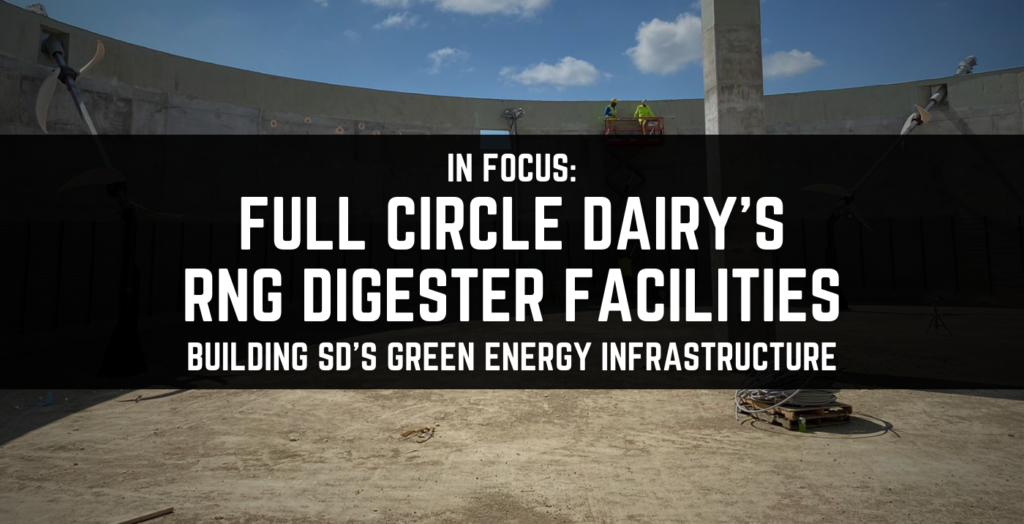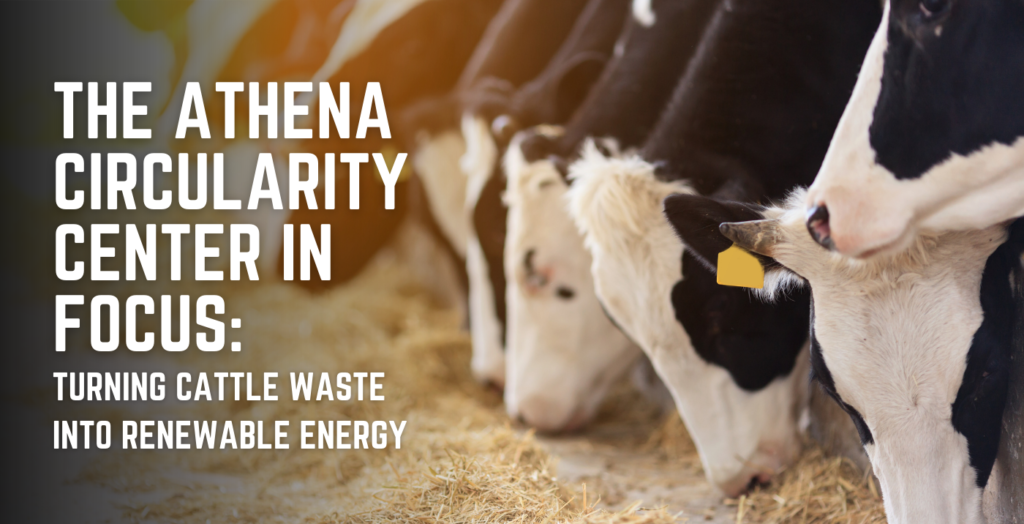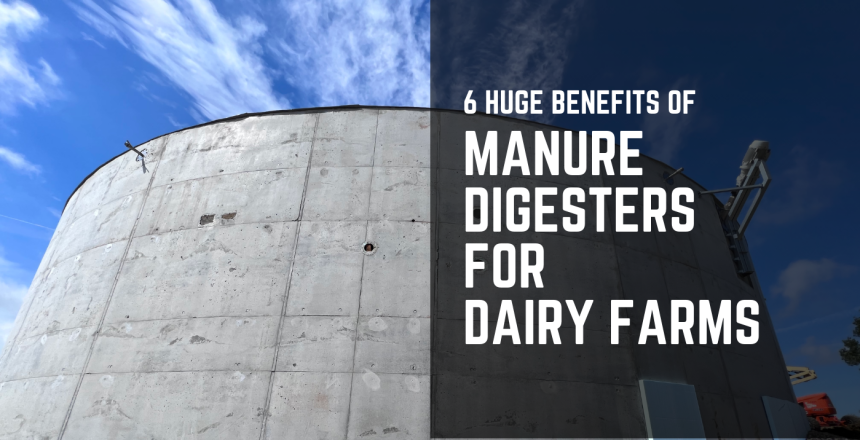Environmental efforts have begun targeting greenhouse gas emissions from sources other than manufacturing and transportation. One of those sources is livestock farms. Agricultural greenhouse emissions play a role in climate change, according to the EPA, and livestock-related emissions are a significant part of the equation.
Methane from livestock waste, however, can serve an important role in reducing carbon emissions if it is contained and transported properly. This is where digesters come into the picture. In fact, manure digesters for dairy farms offer benefits that can improve the environment and bolster income for farmers simultaneously.
What is a Manure Digester?
Farmers who work with livestock know that animal waste is an essential part of the business. Both urine and manure need to be removed from barns and stalls to keep livestock healthy and sanitary. But this waste produces methane gas as it decays, a greenhouse gas that can damage the environment.
Farmers have developed some solutions to this problem, including plastic-covered lagoons that help contain the waste while it decays. These lagoons take up considerable space on farms, limiting the ability to use that land for pasture or crops.
The solution? Manure digesters.
These large concrete or steel tanks hold livestock manure while it decays, collecting the methane safely before piping it to storage containers or tanker trucks for transport. The result is a farm with less greenhouse gas emissions and fewer waste disposal issues. But manure digesters for dairy farms provide more than just these two benefits.
Jeni Brooks, our vice president and lead on our digester projects, has worked closely with biofuel investors and technology providers to build these digesters on several farms in South Dakota.
“There are multiple different ways to build these digesters. We prefer the full-height concrete tanks, but they tend to be a more permanent structure. Steel tanks, while they corrode more rapidly, provide a bit more flexibility for the farmers and investors.”

How does Brooks stand out as the leader in RNG digester construction in South Dakota?
By meeting key challenges with innovative solutions. Find out more here.
For some projects, Brooks helps with the footings, while other projects require the full concrete tank. In every case, our teams come with expertise that the other companies appreciate.
“We’ve done around 20 tanks with Stockwell Engineers, a Sioux Falls-based design-build engineering firm, as well as several more tanks with POET, a major biofuel company based in Sioux Falls. We’ve built an excellent relationship with both companies because we bring dependable and experienced teams to every project.”
How Does a Manure Digester Work?
Manure digesters for dairy farms are beneficial as practical solutions to waste management, but their bigger function is producing and collecting methane gases. Here’s how the process works:
Filling the Tanks
Manure from the farm is transported to the digester site, where it is loaded into the tanks.
Heating
Inside the tanks, heating elements keep the manure at a stable temperature, usually around 125º F, aiding in microbial growth that accelerates the decomposition process and releases more biogas.
Mixing
The heated manure is mixed constantly to help evenly distribute the microorganisms that aid in the decomposition process.
Biogas Production
Through microbial decomposition, the manure produces and releases biogas, most of which is methane. This biogas is then filtered and piped out of the digester for storage.
Biogas Transport
From the methane storage tanks, trucks can transport the biogas to its final destination. It will most often be used for vehicle fuel or electrical generators.
Digestate Collection and Use
When all the methane is collected (which can take up to 30 days), the remaining digestate can be used as fertilizer on the farm that originally provided the manure, or it can be sold and shipped to other farms.

Full Circle Dairy is building South Dakota’s green energy infrastructure.
What Are the Benefits of Manure Digesters for Dairy Farms?
The most apparent benefits of manure digesters for dairy farms are related to waste management and environmental improvements. But the biogas, and the companies that make use of it, both provide much greater benefits for farms that add digesters.
Land Leasing
As we’ve started working with renewable energy companies and biogas investment groups, we’ve been part of some gigantic projects.
“The digesters we’re working on right now are a little bit smaller than the ones we have in the past, with multiple tanks on multiple sites. Each has a 100-foot diameter, and we are doing three on one site and two on the other two sites,” says Jeni.
“By the time we’re done with some of these projects, it could take as much as 7,000 cubic yards of concrete—enough concrete for the foundation, driveway, and sidewalk of around 700 homes.”
The land required for these large manure digesters, which often include 3 or 4 tanks and all the outbuildings for storage, is typically leased from the farmers.
These lease agreements provide annual payments from the investment groups. In return, the manure digesters for dairy farms provide the biogas that companies like Stockwell and POET utilize for renewable fuels.
Manure as Income
Along with leasing the land, investors purchase the manure from the farms. Agriculture professionals can turn their livestock waste into income by working together with biofuel companies.
Safely Harvesting Biogas
The greenhouse gasses produced by manure decomposition help biofuel companies produce renewable energy fuels for vehicles, electricity, and many other uses. Both beneficial to the economy as a local energy resource and to the environment as a less carbon-heavy alternative to gasoline and diesel, biogas means big wins for farmers and communities alike.
Digestate for Fertilizer
Even the waste product of the digesters, the digestate, holds value. Farmers can use the digestate as additional fertilizer for their own farms, or they can sell it to other local farmers. From beginning to end, the lifecycle of manure and its byproducts can be profitable.
Recurring Revenue for Farms
With the land leasing and the constant production of biogas, manure digesters for dairy farms mean an additional stream of recurring revenue. In some cases, according to Jeni Brooks, these dairy and cattle farms are seeing nearly as much annual revenue from biogas production as they are from selling cattle or producing dairy products.
Jeni states, “This is what’s really great for the farmers, and I’m super excited for them that they found this other source of income. Investors lease the land year after year, they buy the manure from the farmers, and then they give the manure back afterward for the farmers to use or sell as well. It’s an amazing deal for them.”
For farmers, digesters offer greater financial stability, especially when weather events can make or break a growing season. For dairy and cattle farms, digesters can supplement income to bolster their operations.
The Athena Circularity Center pioneered RNG production in South Dakota.
Read our in-depth article to see how Brooks helped make it possible.

Brooks Construction And Manure Digesters for Dairy Farms
Since 2021, Brooks Construction has been working with biofuel investors to build state-of-the-art manure digesters for dairy farms and cattle producers. Our experienced team has worked on both full concrete tanks and outbuildings as well as steel tanks. As one of the few concrete companies that has experience working with curved wall forms, we have the ability to help you realize your digester project with confidence in your investment.
If you’re ready to invest in a biofuel project with manure digesters, contact Brooks today. We’ll help you get started with reputable investors and contractors in the biogas and renewable energy market.



